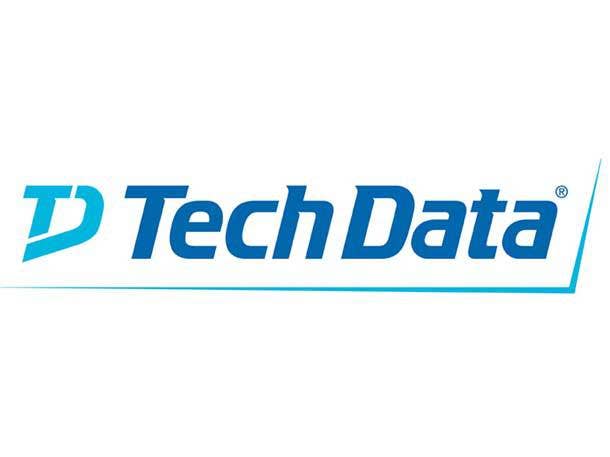Tech Data Grows In Americas, Shrinks In ‘Less Robust’ Europe
Sales in the Americas were $3.8 billion, up 5 percent over last year, driven by growth of cloud, security, software licenses, and data center hardware, as well as PCs, the company said.

Massive IT distributor Tech Data posted lower quarterly sales, which it blamed in part on the rising value of the U.S. dollar overseas, a softer European economy, and a tough compare to last year when overall growth was higher, the company told investors Thursday.
While North America and Asia performed well in the first quarter ending April 30, sales in Europe took a hit, which the company said is due to a softening economy in that region due to “underlying macroeconomic trends” such as Brexit and a flat German economy, Tech Data CFO Charles Dannewitz said. Tech Data sales in Europe dropped 8-percent year over year, to $4.3 billion, though that market still showed demand for cloud products, networking, mobility, and servers.
“So this is speculative and anecdotal but I think that the European demand being less robust than the Americas is associated with those economic factors,” Dannewitz said “I would also say that when we take a look at our portfolio actions I think we've made it clear previously that we had a good opportunity to improve over in Europe. We are a work in process in Europe, we've got great leadership over there. We're running the three plays that I talked about earlier but certainly portfolio is part of it.”
Overall first quarter revenue came in at $8.40 billion this quarter, compared to $8.54 billion a year ago, for a drop of 2 percent, the company said. Tech Data posted net income of $55.4 million for an earnings per share of $1.49.
By region, sales in the Americas were $3.8 billion up 5 percent over last year, which was driven by the growth of cloud, security, software licenses, and data center hardware, as well as PCs, the company said. Those sales would have been higher still, but for a “one-off,” which the company would not detail on the call with investors.
“We had higher expectations for the Americas when we entered the quarter but we had an unanticipated one-off that impacted our operating income,” CEO Rich Hume said. “Excluding the one-off, the region actually performed quite well. And going forward, we expect that the Americas will continue their string of very solid performance. We've got great leadership in the geography and they run and execute the business really well … In any given quarter you're faced with one-offs and we aren't going to get into the details. I just would say that it was something that we faced in the quarter that was outside of our expectations.”
Hume downplayed investor concern about how international trade tensions would play with Tech Data’s vendors. He said the distributor would raise prices in tandem with suppliers.
“If vendors decide that they have to or consider taking price increases associated with incurred incremental costs then as they raise their prices as a generalization, we do an evaluation and typically we follow those price increases simultaneously,” he said. “So from an overall tariff perspective we as we had seen with round one, our business is fairly seamless in being able to manage that. And really as it goes from potentially 10% to 25% et cetera I think that our judgment would be that if there were an impact that would be the overall macro level economy slowing down as opposed to any transactional exposures that we might have in our business.”
He said as far as what may come in terms of trade restrictions, Tech Data would be guided by US law on the matter. He added that about 4-percent of the company’s total inventory is exposed to possible impact from possible trade restrictions.
“We potentially could be exposed with the inventory that we carry,” he said. “We will follow the laws of the United States and as they ebb and flow, and determine where they want to go with that in the future, we certainly will comply. At the same time we have the responsibility to respect our vendor relationships and we certainly are doing that as well.”